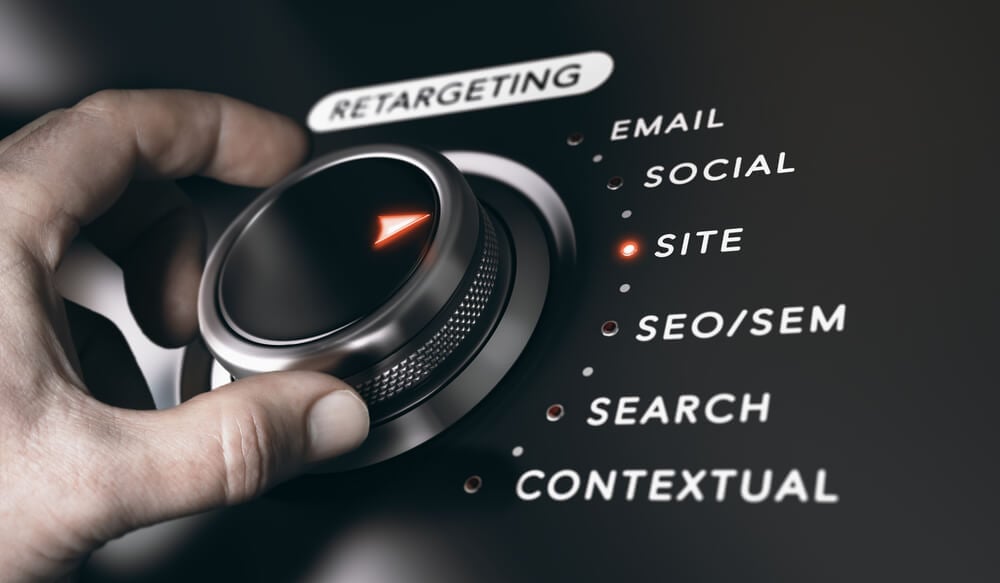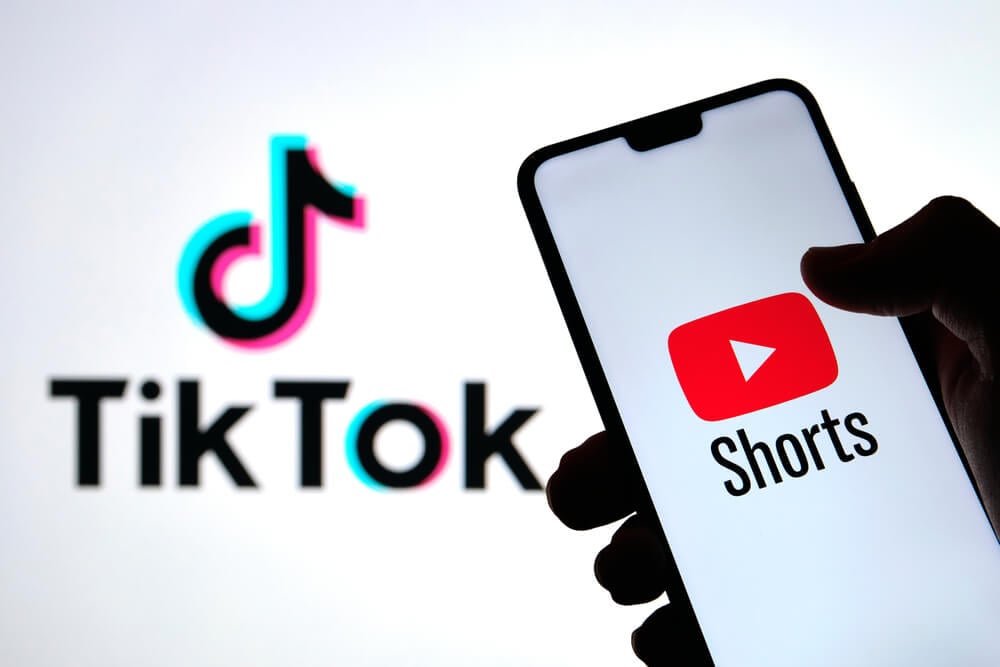Are Your Budgets Realistic? Let's Talk Practical Ad Spend

When it comes to ad spend, digital marketing campaign budgets often vary in amount and allocation. However, it's helpful to know the importance of experimentation and how to allocate a budget for digital marketing to determine the most realistic financial plan for your goals. No business is exactly the same, so you want to cater to your own needs and expectations for marketing.
While brands should monitor ad spend, that never means you should hit the pause button on your ad spend. Of course, you have to begin somewhere — and there's no better marketing budget breakdown than the basics that will follow.
Do You Know Your Marketing Budget Fundamentals?
 First and foremost, all businesses are different, with various needs and marketing goals. What works for one marketing team may not work for the next, so you must always consider your business's circumstances when determining a realistic budget.
First and foremost, all businesses are different, with various needs and marketing goals. What works for one marketing team may not work for the next, so you must always consider your business's circumstances when determining a realistic budget.
With that said, each marketing team can brainstorm the following questions to understand how to allocate funds and decide where to put marketing dollars first:
- What percent of your budget can you spend on marketing?
- What is your funnel/conversion process?
- How do you convert traffic into leads/sales?
- What is your lead to customer conversion rate?
- What is your customer lifetime value (CLV)?
When planning a budget, evaluating the worth of visitors/traffic, leads, and repeat/current customers to your business is essential. This way, you can ensure you're not hindering your goals. You can create better marketing budgets with a better understanding of your goals and needs.
How to Allocate a Percentage of Total Revenue to Marketing
 Marketing and ad spend tracking are essential components of a growing business, and when your business advances, your marketing needs to as well. For this reason, it's important to allocate a percentage of total revenue to marketing — instead of a set budget that never changes.
Marketing and ad spend tracking are essential components of a growing business, and when your business advances, your marketing needs to as well. For this reason, it's important to allocate a percentage of total revenue to marketing — instead of a set budget that never changes.
But how much? On average, companies spend up to 40% of their revenue on marketing. More specifically, 3% to 20% of funds are often put back into marketing. Businesses under five million in revenue with a 10% profit margin typically spend an average of 8% to 10%. If you need to know how to set a marketing budget for your small business, the typical marketing budget for small businesses is about 3-5%.
These numbers may seem daunting at first look, but remember: marketing drives revenue! The more marketing you do (as long as you're executing it correctly), the more connected you will be with your target audience. The more connected you are with your audience, the more revenue comes rolling in as you acquire loyal customers, new customers, and free promotions like social and word-of-mouth referrals.
What is the Cost of Each Stage of Your Marketing Funnel?
 The simplest way to see how your business makes money is to think of the buyers' journey/ sales funnels. It's important to know what traffic costs, what it costs to acquire a customer, and what the average customer will spend to plan a marketing budget. This way, you can determine the right mix of ad spend versus return-on-investment (ROI).
The simplest way to see how your business makes money is to think of the buyers' journey/ sales funnels. It's important to know what traffic costs, what it costs to acquire a customer, and what the average customer will spend to plan a marketing budget. This way, you can determine the right mix of ad spend versus return-on-investment (ROI).
What is the Cost of a Visitor?
You must know your cost per acquisition (CPA) for marketing budgets, the initial cost marketers spend to acquire a new customer. This is important because CPA can show you how much your advertising costs when converting visitors successfully. Without it, you risk the chance that you're overspending on customer acquisition.
Cost Per Acquisition = total advertising spend divided by the number of acquisitions.
For budgeting and revenue reasons, you'll want your CPAs to be less than customer lifetime value (CLV), so consider where your audience is and what platforms make the most fiscal sense when targeting consumers before deciding where to market your brand.
From there, HubSpot suggests optimizing your CPA costs by:
- Piquing your audience's curiosity
- Selling a feeling
- Designing a simple, convincing landing page
- Pursuing conversions over clicks
What is the Cost of a Lead?
You'll also want to get comfortable with cost per lead (CPL), an online pricing model that measures your campaign's cost-effectiveness in generating leads.
It is calculated with the following formula:
Cost Per Lead = total marketing spend divided by new leads
For example, if the client has a CPL of $200 and a goal conversion rate of 5%, you can back into what click-through rate (CTR) you need to succeed. This varies across platforms (display ads, social media platforms, AdWords) and industries, but you can use cost-per-click (CPC) to know how much it costs to gain a lead.
To budget well and get the most out of your paid advertising, determine which platforms will bring you the highest conversion rates for the most practical price. One or two digital advertising platforms can be enough for small businesses because creative, data analysis, and management costs can get high if you use too many platforms.
What's Your Customer Lifetime Value (CLV)?
 CLV is the average total revenue from a customer throughout your relationship with the consumer. It is vital to know and understand because it determines how valuable that customer is to your bottom line. Therefore, how much advertising should be allocated to keeping your relationship strong with that customer.
CLV is the average total revenue from a customer throughout your relationship with the consumer. It is vital to know and understand because it determines how valuable that customer is to your bottom line. Therefore, how much advertising should be allocated to keeping your relationship strong with that customer.
CLV is calculated with this formula:
Customer Lifetime Value = customer value multiplied by average customer lifespan
Customer Value = average purchase value multiplied by average number of purchases
CLV can vary by company size and industry. When it comes down to it, existing customers are much more likely to continue spending money with you, costing less than acquiring new customers. So, if your customers have a high CLV, you can spend more on marketing. For most companies, 20% is a reasonable budget. For example, if your CLV is $10k, you can spend $2k on new customer acquisition.
Partner With a Digital Agency to Get The ROI You Deserve
Innovative marketing teams know the cost of attracting traffic, gaining leads, and maintaining repeat customers. Marketing drives revenue, and with smarter marketing budgeting, revenues are higher.
If you aren't getting the ROI you should be, partnering with a digital agency can help provide better advertising solutions. There's no reason your business shouldn't be meeting its primary goals — with an expert digital agency, you can rest assured that you're getting the most out of your digital marketing budget.
Related Posts
Unveiling the Secrets: CoxNext Experts Answer 5 Vital Questions on Enrollment Marketing!
May 24th, 202323 Retargeting Statistics You Need to Know
April 26th, 2023Why Partner With Multiple Agencies When One Is All You Need?
April 20th, 202310 Key Tips for Using Video Shorts in Social Media Marketing
April 12th, 20238 Reasons to Use Video Shorts in Marketing
April 5th, 2023What is a White Labeling Service and Why Should You Consider It?
March 29th, 2023What is the Future of TV Advertising?
March 22nd, 2023Marketing Solutions for Every Step of the Buyers’ Journey
March 13th, 20237 Ways to Know Your Marketing Isn’t Working
February 28th, 2023Categories
- Marketing Strategy (90)
- Digital Advertising (47)
- Digital Marketing (28)
- Content Marketing (17)
- OTT (16)
- ROI (13)
- Content Creative (12)
- Agency Partnerships (11)
- Social (10)
- Video (8)
- COVID-19 (7)
- Advanced Data (6)
- Research (6)
- Technology (6)
- Cox Enterprises News (5)
- Generational Marketing (5)
- Industry: Travel (5)
- Industry: eCommerce (5)
- Advertising Budget (4)
- Industry: Higher Education (4)
- Social Media Marketing (4)
- E-commerce (3)
- Podcasts (3)
- Recruitment Marketing (3)
- Search (3)
- Social Media (3)
- Branding (2)
- Inclusive Marketing (2)
- Industry: Cannabis (2)
- Industry: Home Improvement (2)
- marketing budget (2)
- CoxNext News (1)
- Industry - Automotive (1)
- Industry: Healthcare (1)
- Influencer Marketing (1)
- Podcast Advertising (1)
- Privacy (1)
- working with an agency (1)









.jpg)
.jpg)
%20(1).jpg)
